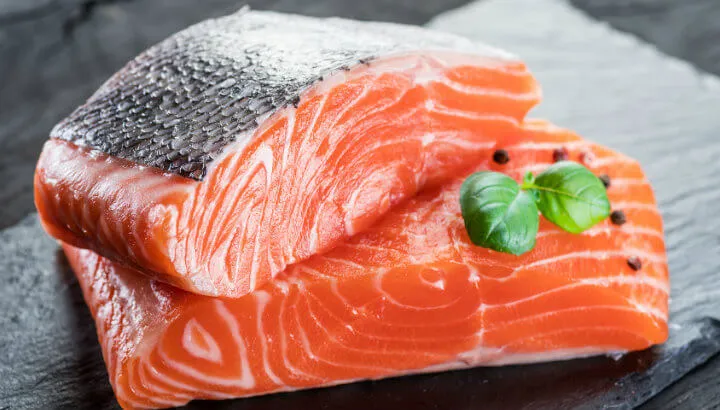- Share on Facebook172
- Share on Pinterest
- Share on Twitter
2. Wild-Caught Salmon
While most of the Western world has caught on to the fact that salmon is a great heart-healthy food, many people still don’t realize that this is only the case if that salmon isn’t farmed. Wild-caught salmon has amazingly high levels of heart-supporting omega-3 fatty acids. But farmed salmon typically has a much higher percentage of inflammatory omega-6 fatty acids.
For this reason, it’s important to check the labeling and make sure that it says “wild,” “wild caught,” or “sustainably caught.” Also, try to go for the Pacific varieties. The Atlantic salmon fishery was exhausted a long time ago, meaning any “Atlantic salmon” you buy now is almost always farmed.
A 2004 study published in the journal Science analyzed over two metric tons of farmed and wild salmon from around the world. The analysis showed that concentrations of organochlorine contaminants “are significantly higher in farmed salmon than in wild.” Researchers went on to conclude that “consumption of farmed Atlantic salmon may pose health risks that detract from the beneficial effects of fish consumption.” Stick to wild salmon — your heart will thank you for it.
- Share on Facebook172
- Share on Pinterest
- Share on Twitter

